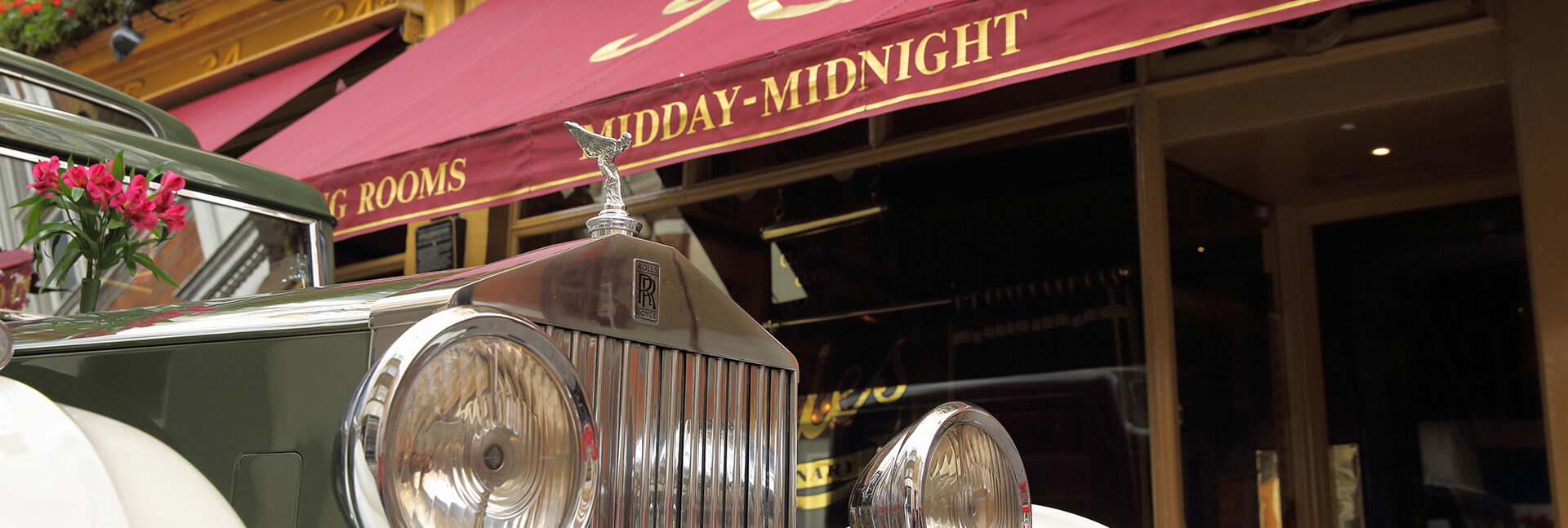I think I can claim to be the first person to have eaten grouse in Britain on the Glorious Twelfth. Let me explain this boast, which may impress you, appal you or leave you indifferent. An invitation came from John Mayhew, owner of Rules, to lunch on his Lartington Estate in County Durham. Richard Corrigan of The Lindsay House, was going to cook birds bagged on the first early-morning drive that took place on nearby moors. It was an irresistible invitation.
We arrived at Darlington station in good time to be driven to the estate to watch crayfish, which would constitute our first course, being plucked from a private pond where, a few years after their introduction, they have taken to multiplying like crazy. We were then taken to the kitchen garden where, in a manner that would have impressed Marie Antoinette, I picked broad beans and peas for the vegetable element of the lunch. Richard uprooted some baby beetroot. A bumpy four-wheel drive then deposited us at a log cabin in a fold of the hills where a fire for a barbecue had been started earlier.
Richard spatchcocked the birds he had plucked. Reg (my husband) and I podded the beans and peas and by about 1.30pm lunch was on the table. They say that grouse must be hung for a few days before consuming, a statement I was always quite ready to believe and mouth myself, but a young bird eaten fresh is, I can tell you, also an estimable meal. Just half an hour between beans and peas being picked and being served also produces an experience fit for the gods.
Grouse are scarce this year – genuinely, it would seem, rather than just in accordance with the gloomy announcements that greet every new season – but they are available at Rules at the relatively reasonable price of £22.50. (The Savoy is currently charging £35.) Shopping in Selfridges’ food hall last weekend, I noted that grouse were being sold at £15.99 each, but the chap behind the meat counter said they would be down to about £8.50 in a couple of weeks. Were the grouse better spatchcocked or whole? They were rendered more tender cooked whole.
Second Helpings
Throughout the year, Rules beguiles (as indeed it has done for 200 years) through edwardian comfort, a strong sense of Englishness and efficient, agreable staff, but it is in autumn and winter with the game season in full swing that Rules becomes irresistible. The main course I had of whole roasted widgeon with pureed parsnips and other seasonal vegetables was about as satisfactory a dish as any trencherwoman could hope to be served. Looking alarmingly rare, the meat was, in fact, cooked precisely to deliver maximum flavour and tenderness. Also, widgeon (a species of wild duck) is not a scrawny little thing: there is plenty of meat that can be easily prised off the bone structure. My fellow game player chose roast partridge with foie gras, pease pudding and thyme sauce. A subtle gaminess to the meat proved this a wild bird – the farmed variety is an insipid creature – and the accompaniments signifying both luxury and earthiness cleverly caught the spirit of the sport of wild-game shooting. Plus it was delicious. I took my hat off (metaphorically) to the partridge-eater for choosing as a first course the terrine of foie gras and grouse with sauterne jelly. This was also exemplary, and the grouse content not some shredded offcuts but pieces of rosy breast meat. My Morecambe Bay potted brown shrimps in spiced lobster butter arrived as a bit of waxwork but improved in the eating as the butter softened. Lulled by the atmosphere into greater-then-usual expansiveness, we ordered burnt English custard with strawberries and Cheddar cheese Welsh rarebit. The custard had the correct caramel windowpane as a topping but the fruit added little; there was too much roux behind the rarebit which would have been sharper and better made with just melted cheese.

